Films with theme "Documentary films about law enforcement", sorted by revenue

Mr. Big (2007)
, 1h29Origin Canada
Genres Documentary
Themes Documentary films about law, Documentary films about law enforcement

Prison Town, USA (2007)
, 1h27Origin USA
Genres Documentary
Themes Prison films, Documentary films about law, Documentary films about law enforcement
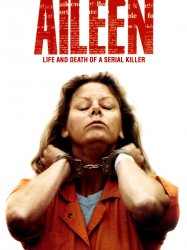 , 1h29
, 1h29Directed by Nick Broomfield
Genres Drama, Documentary, Crime
Themes Prison films, Documentary films about law, Documentaire sur une personnalité, Serial killer films, Films about capital punishment, Documentary films about law enforcement
Actors Nick Broomfield
The film focuses on an evidentiary hearing held in Marion County, Florida in February of 2001 which was the site of some but not all of Wuornos' murders for which she was convicted and sentenced to death. It shows the work of the Office of Capital Collateral Regional counsel, led by attorney Joseph T. Hobson who is both interviewed and featured in the film and who seeks to vacate Wuornos' death sentences. It shows Judge Victor Musleh presiding over these proceedings and assistant state attorney, now judge, James McCune who defended the death sentences for the State of Florida. Hobson is shown vigorously cross-examining Wuornos' trial counsel, Steven Glazer, aka "Dr. Legal". Glazer was the unflattering subject of a prior Broomfield documentary on Aileen Wuornos, somewhat the "prequel" to this work, called Aileen Wuornos: The Selling of a Serial Killer. It was Hobson's line of attack that the efficacy of his client's (Wuornos') trial strategy was compromised by Glazer's pecuniary and self-promotional aims.
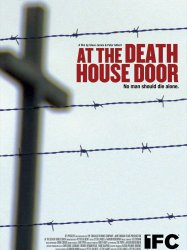
At the Death House Door (2008)
, 1h38Origin USA
Genres Documentary, Crime
Themes Prison films, Documentary films about law, Documentaire sur une personnalité, Films about capital punishment, Documentary films about law enforcement
Pickett presided over 95 executions in his 15 year career, including the very first by lethal injection. He kept his feelings about his work from his family, instead audiotaping an account of each one. Initially pro-execution, he became an anti-death penalty activist.

The Crown (2008)
, 40minutesOrigin USA
Genres Documentary
Themes Prison films, Documentary films about law, Documentary films about law enforcement
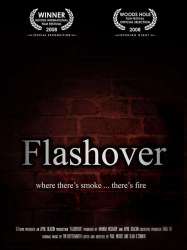
Flashover (2008)
, 30minutesGenres Documentary
Themes Prison films, Documentary films about law, Documentary films about law enforcement
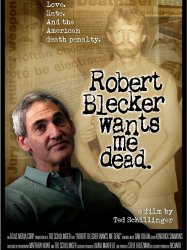
Robert Blecker Wants Me Dead (2009)
, 1h30Origin USA
Themes Prison films, Documentary films about law, Films about capital punishment, Documentary films about law enforcement

Up the Ridge (2008)
Origin USA
Genres Documentary
Themes Prison films, Documentary films about law, Documentary films about historical events, Documentary films about politics, Political films, Films about capital punishment, Documentary films about law enforcement
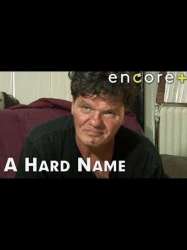
A Hard Name (2013)
Origin Canada
Genres Documentary
Themes Films about children, Prison films, Documentary films about law, Documentaire sur une personnalité, Documentary films about child abuse, Documentary films about law enforcement, Films about child abuse

The Impossible Itself (2010)
, 1hOrigin USA
Genres Documentary
Themes Prison films, Documentary films about law, Documentary films about law enforcement
The film documents the 1957 San Francisco Actor's Workshop production of the Samuel Beckett's play Waiting For Godot which was performed live before inmates at San Quentin Prison. The film also examines a 1953 performance of Godot by inmates at the Luttringhausen Prison in Germany, providing new scholarship material on those performances.
 , 1h4
, 1h4Origin USA
Genres Documentary
Themes Documentary films about law, Documentary films about cities, Documentary films about law enforcement
Actors André 3000, Donovan Leitch, Marc Levin, Al Sharpton
 , 1h20
, 1h20Directed by John Borowski
Origin USA
Genres Documentary, Crime
Themes Prison films, Documentary films about law, Documentaire sur une personnalité, Serial killer films, Films about capital punishment, Documentary films about law enforcement
Actors John DiMaggio
A lifelong criminal and serial killer, Carl Panzram befriends Henry Lesser, a young jail guard at the Washington DC jail in 1928. After hearing of Panzram's torture, Lesser sends Panzram one dollar and convinces the killer to write his autobiography while secretly supplying him with pencil and paper. Panzram writes over 40,000 words documenting his entire life of incarceration, torture, rape, and murder.

Love Crimes Of Kabul (2011)
, 1h12Genres Documentary
Themes Prison films, Documentary films about law, Documentaire sur une personnalité, Documentary films about law enforcement
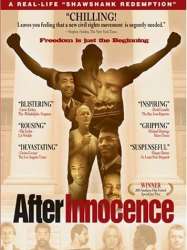
After Innocence (2005)
, 1h35Origin USA
Genres Documentary, Crime
Themes Prison films, Documentary films about law, Films about capital punishment, Documentary films about law enforcement

Outback Patrol (1952)
, 20minutesDirected by Lee Robinson
Themes Documentary films about law, Documentary films about law enforcement
 Connection
Connection